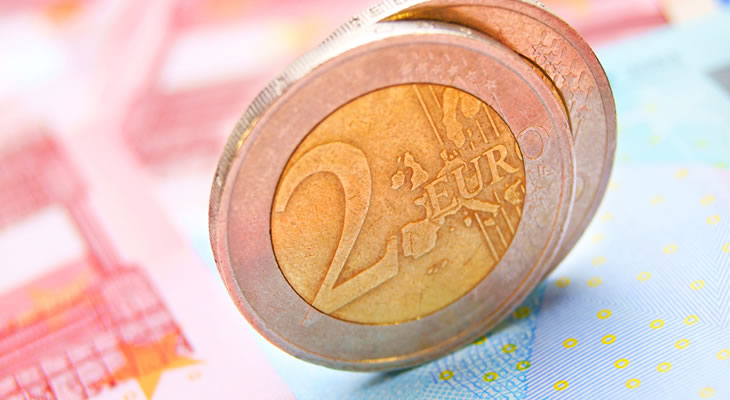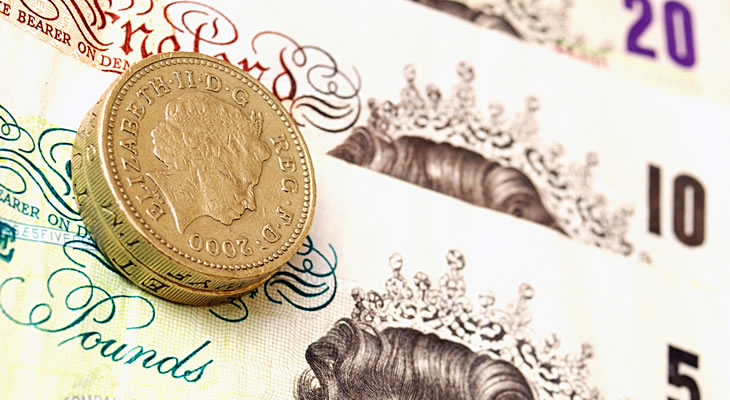- Update – UK construction PMI shows shock decline
- FTSE 100 hits ten-month high – shares artificially inflated by weakened Pound
- GBP EUR advances – George Osborne announces corporation tax cut plans
- Italian banking crisis unnerves Euro – PM may break EU legislation to bail out banks
- GBP EUR exchange rate forecast – Uncertainty to dominate following data releases
As we enter the second week of post-referendum Britain, the Pound Euro exchange rate is advancing. Last week’s suggestion that more Bank of England (BoE) stimulus is forthcoming continues to calm the markets, pushing up all UK assets.
UK Construction Sector PMI Prompts Pound Decline after Revealing Shock Contraction
The extent of the construction sector weakening in the run-up to the UK’s referendum vote has taken economists and markets by surprise. June’s index was predicted to slow from 51.2 to 50.7, which would leave it still marginally in growth territory. However, the index instead dropped to 46 – firmly in the contraction range. As a result, the Pound and UK stocks have tumbled, falling into negative territory.
Legal Challenge to Article 50 Boosts Pound Euro (GBP EUR)
The markets have several reasons to be optimistic today. Mark Carney’s suggestion last week of further monetary stimulus from the Bank of England (BoE) continues to buoy investor sentiment. This has resulted in a run on all UK assets, with the Pound on the rise against virtually all the majors. The FTSE 100 has hit a ten-month high in Pound terms, while UK gilt yields continue to drop.
However, as economist Nicolas Veron points out, the rise in UK stocks is largely contributable to the weakened Pound, which is artificially inflating share values. Veron tweeted;
‘Remember that FTSE100 priced in £ but 75% of revenue from outside UK. Artificial boost from Pound devaluation.’
George Osborne made another attempt to reassure investors that the UK remains ‘open for business’, telling the Financial Times that he has prepared a five-step plan to steer the country away from a ‘DIY’ recession. The first of his policies is to cut corporation tax further and faster than originally planned, taking it lower than 15%. Initially the Chancellor had plans to gradually reduce corporation tax from the current rate of 20% down to 17% over the next three years. However, many believe the move could antagonise the EU, who may see it as an attempt by the UK to become a tax haven. There are suggestions that, in declaring his intentions already, George Osborne may have inadvertently played one of his key negotiating cards before the ‘Brexit’ talks have even begun, weakening the UK’s position.
Investors have been further heartened by news that a prominent firm of lawyers is preparing to launch a legal challenge against the government regarding the triggering of Article 50 of the Lisbon Treaty. The article, which initiates the UK’s exit procedure from the European Union, cannot be triggered without an act of Parliament, lawyers from Mishcon de Reya have argued. The group is acting on behalf of an unnamed group of clients and has sought assurances from the government that it will uphold the UK constitution with regards to implementing the results of the referendum.
Explaining their position, Mishcon de Reya partner Kasra Nouroozi explained;
‘We must ensure that the government follows the correct process to have legal certainty and protect the UK constitution and the sovereignty of parliament in these unprecedented circumstances. The result of the referendum is not in doubt, but we need a process that follows UK law to enact it. The outcome of the referendum itself is not legally binding and for the current or future prime minister to invoke article 50 without the approval of parliament is unlawful.’
Euro Pound (EUR GBP) Exchange Rate Slides as Italy Threatens to Break EU Bailout Rules

The precarious state of the Italian banking system is unnerving Euro investors today. Italy is considered the Eurozone country most at risk to a shock following the UK’s ‘Brexit’ vote, with many fearing that upcoming stress tests will reveal further weakness. Italian banks are in desperate need of recapitalisation, thanks to the weight of €200 million-worth of bad debt. But Angela Merkel has already shot down pleas from the Italian government to suspend EU regulations that require creditors, rather than taxpayers, to fund bank bailouts.
The impasse has been reached due to the desperation of EU officials to rule out the possibility of concessions being made to member states in the wake of the UK’s vote to leave the Union. Brussels has agreed to €150 billion in additional liquidity measures for Italian banks, but this does not solve the long-term capital crisis. Italian Prime Minister Matteo Renzi has threatened to continue with a government bailout regardless of the fact that it contravenes regulations, potentially causing a situation that could see Italy follow the UK out of the European Union.
In domestic news, the Eurozone Sentix Investor Confidence index for July has dropped from 9.9 to 1.7, far below the 5.0 mark forecast.
Pound Euro (GBP EUR) Exchange Rate Forecast; ‘Brexit’ Sentiment likely to Drive Movement
Today looks set to be another day of sentiment-based trading, with the day’s economic data for the UK and the Eurozone already released and technically outdated due to it depicting the pre-referendum economy. Uncertainty continues to grip the markets, with the Tory leadership challenge and George Osborne’s stimulus attempts the focus of investor attention, while traders in the Eurozone will be keeping an eye firmly on the unfolding Eurozone crisis.
Current GBP, EUR Conversion Rates
The Pound Euro (GBP EUR) exchange rate is currently trading between 1.1916 and 1.1969, while the Euro Pound (EUR GBP) exchange rate is trending between 0.8352 and 0.8388.


Comments are closed.